On the way back from Oshkosh, I stopped (early August) at the idiot-proof Cedar Rapids, Iowa airport (KCID) and spent 20 minutes driving through beautiful rolling hills covered in corn to the Amana Colonies, home to German-Americans who lived communally here from 1856 through 1932. (If you feel lucky, there is a 2600′ “fair condition” grass runway in Amana, C11.) They purchased the world’s most productive agricultural land for $1.25 per acre.


At the museum, I learned that, although the members of the colony were immigrants to the U.S., they were quite selective about who could immigrate into the commune, which would then be responsible for housing, clothing, feeding, and caring for the immigrant. One reason that the museum provides for the break-up of the communal lifestyle is that “some pretended to be sick or refused to work because they knew they would still receive room and board, resulting in the society hiring more outside laborers.”
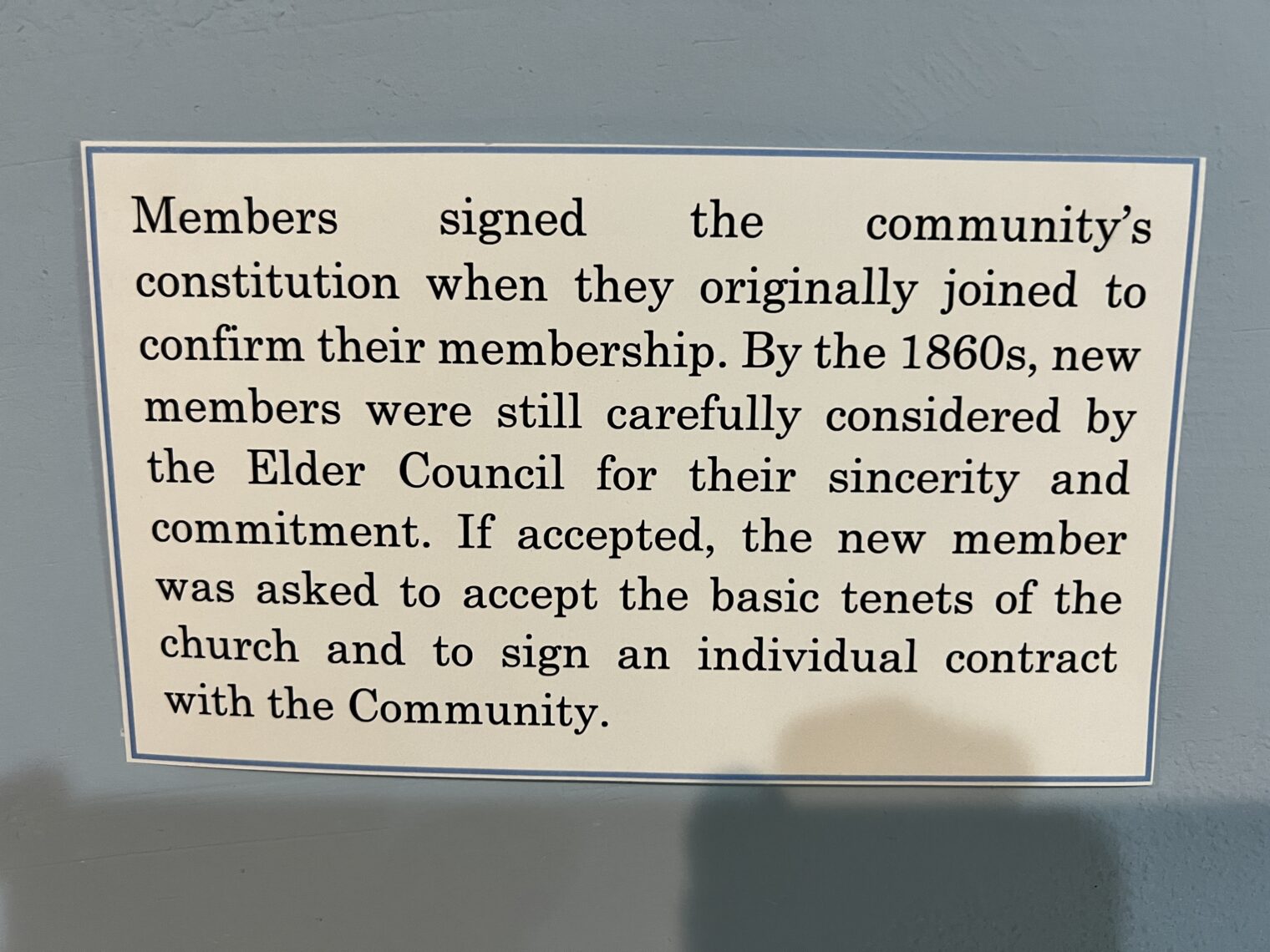
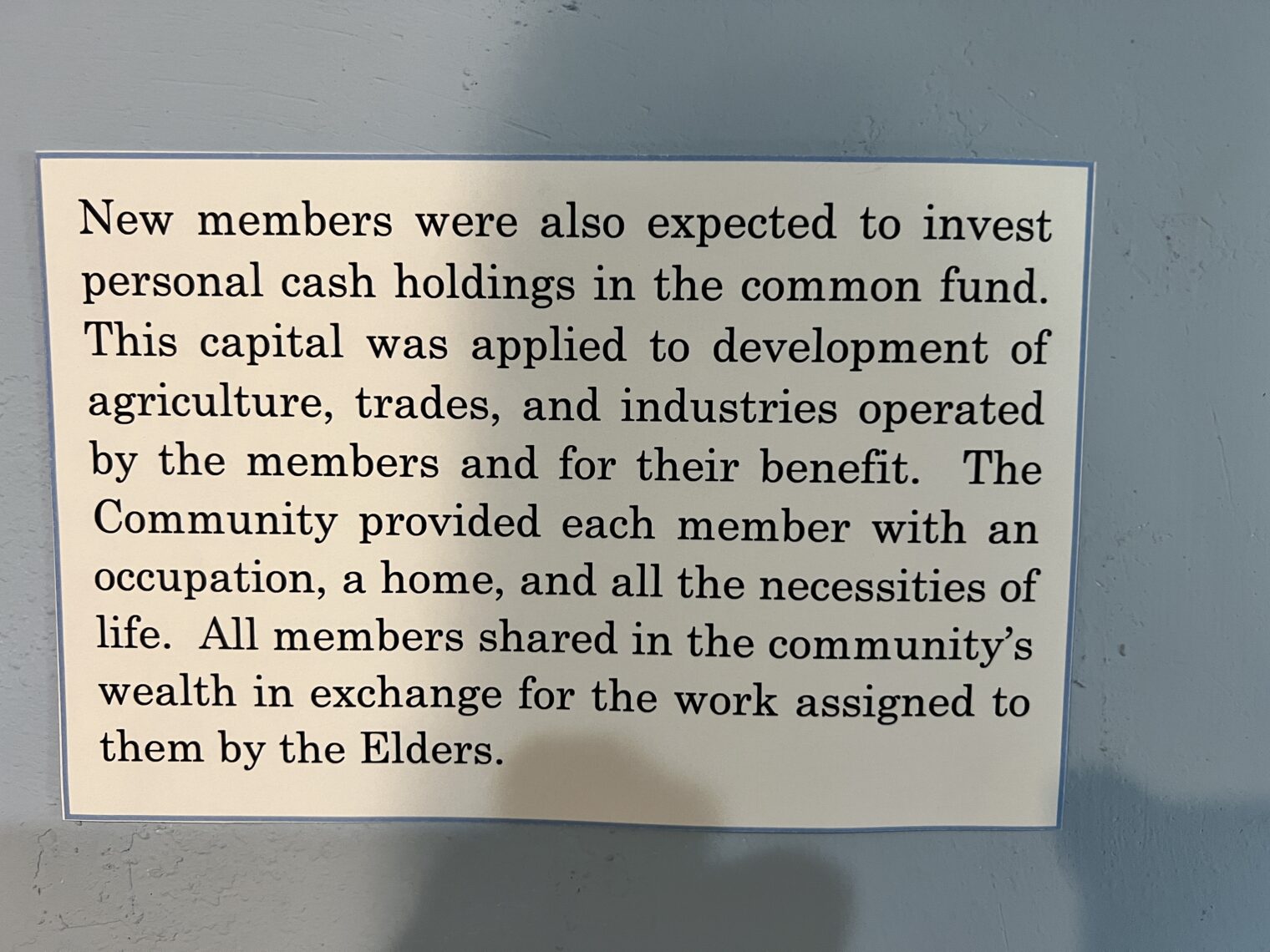
The communalists followed Christianity, attending 9 church services per week. Once Americans lose their faith in Jesus, what religion do they follow?
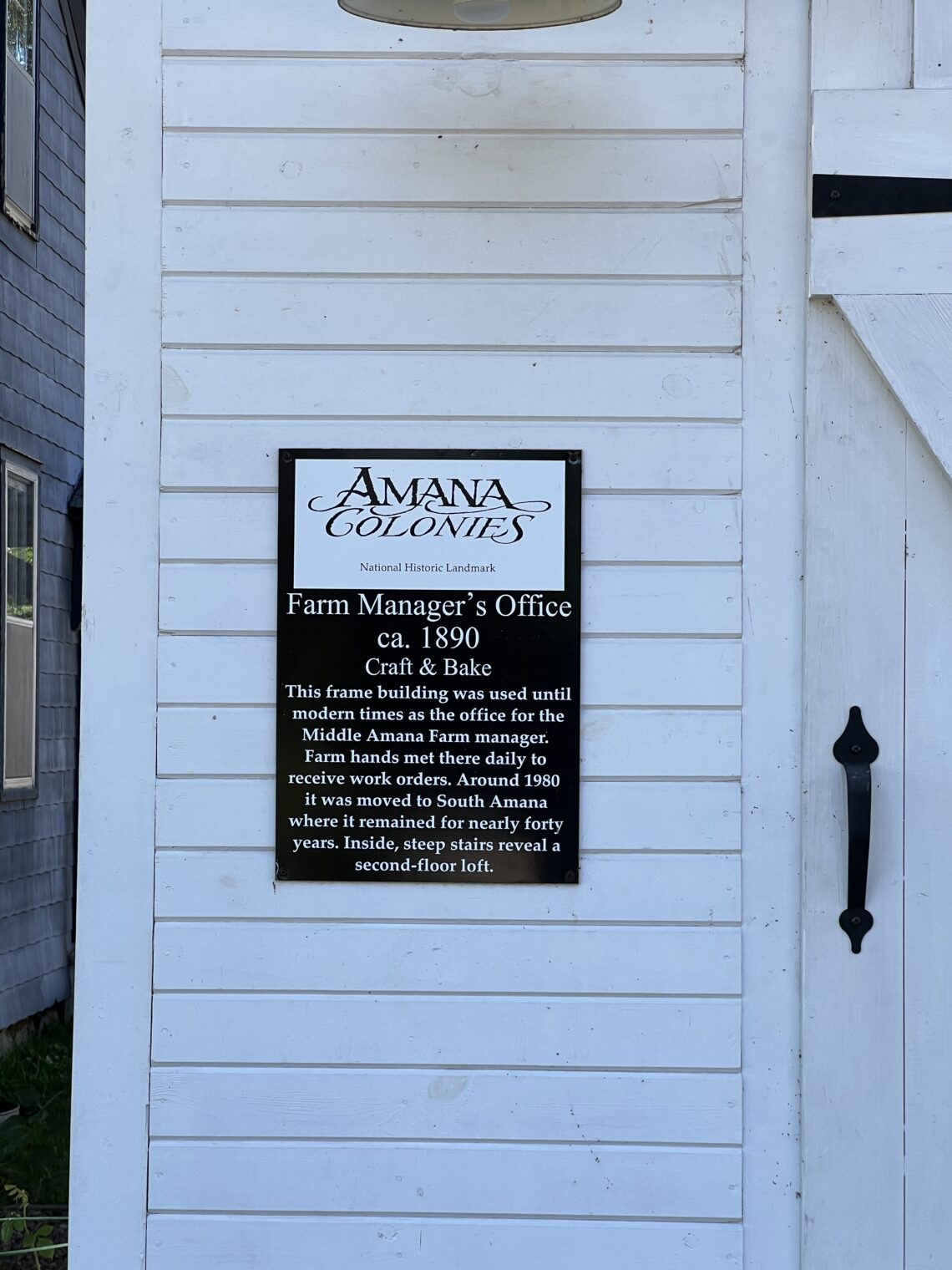



Families shared a house, as in Soviet Russia or present-day New York City. However, there was no kitchen in the house. Everyone ate together in a communal kitchen, which typically fed 30-40 people at each meal. They loved coffee (served to children as well) and horseradish:
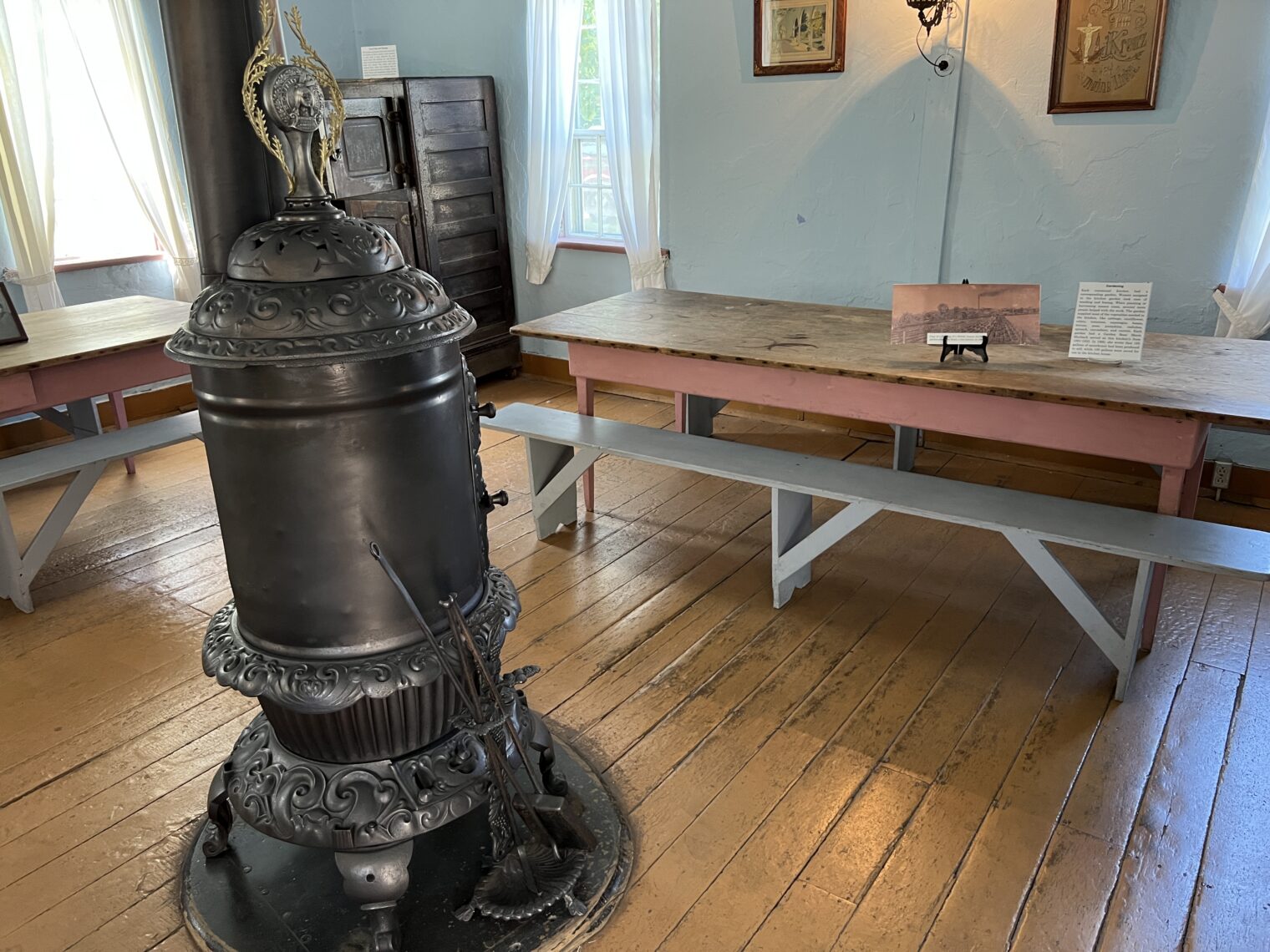

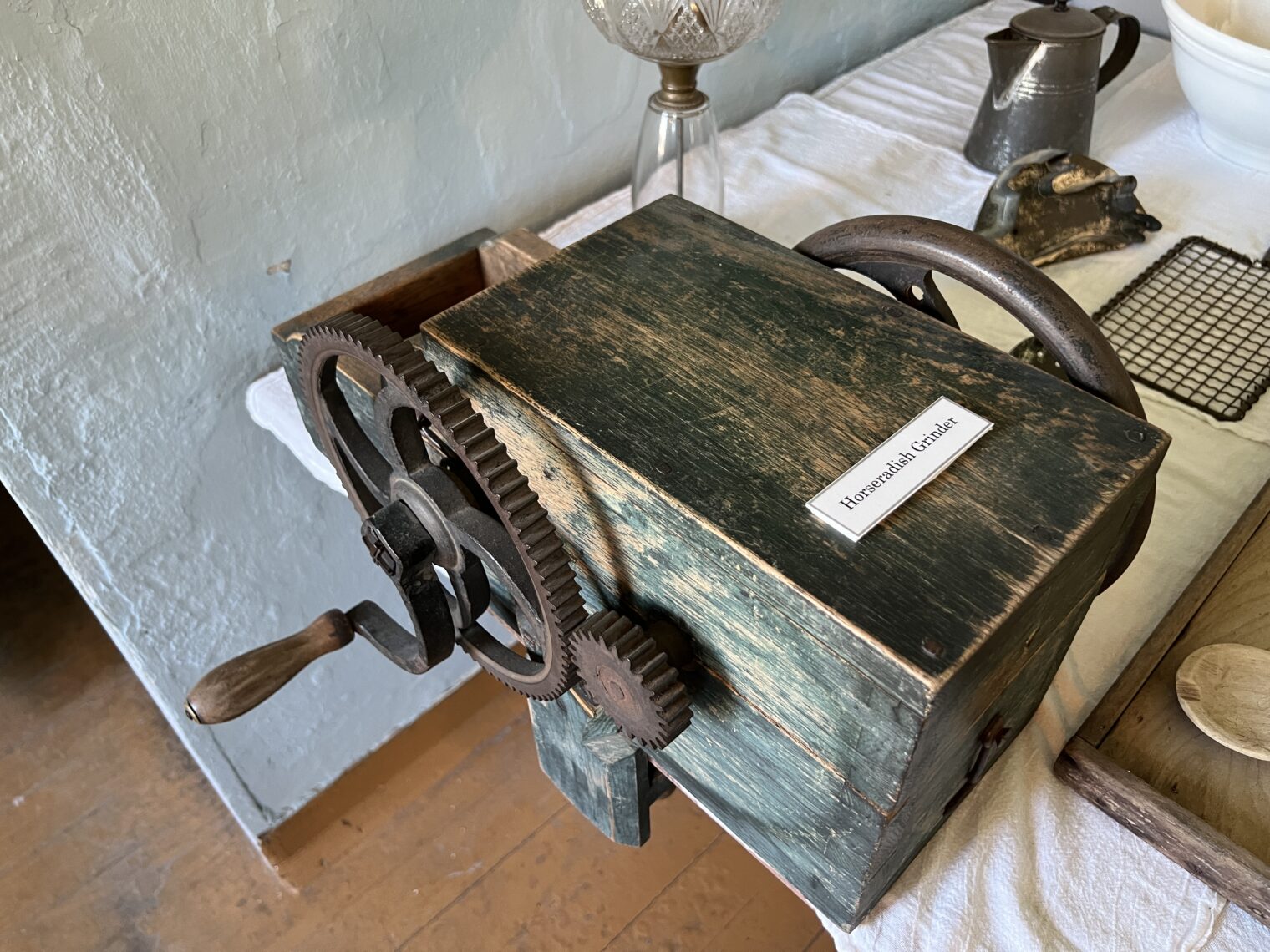
Today:
For those who buy dollhouses at Amazon or Costco:

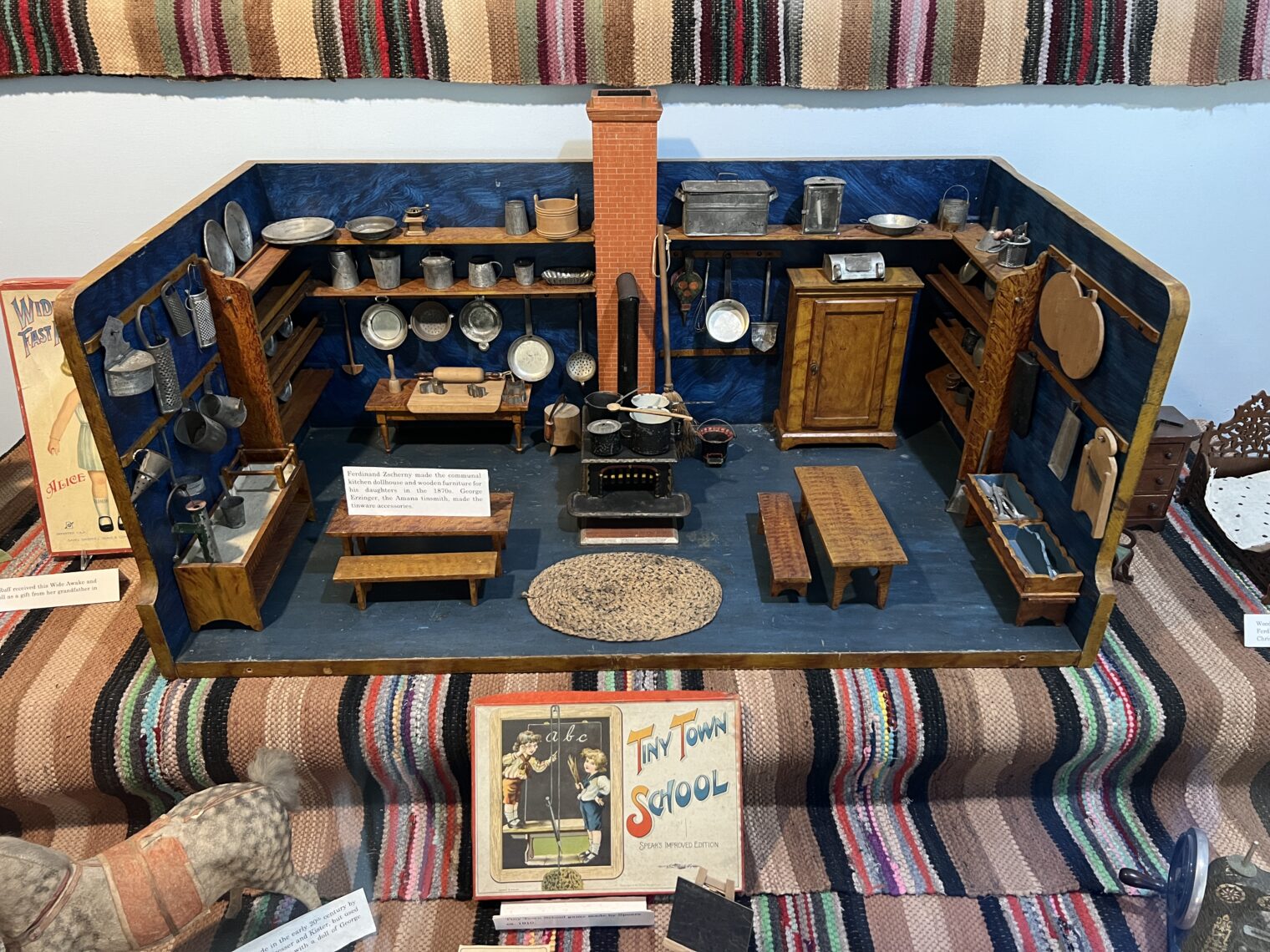
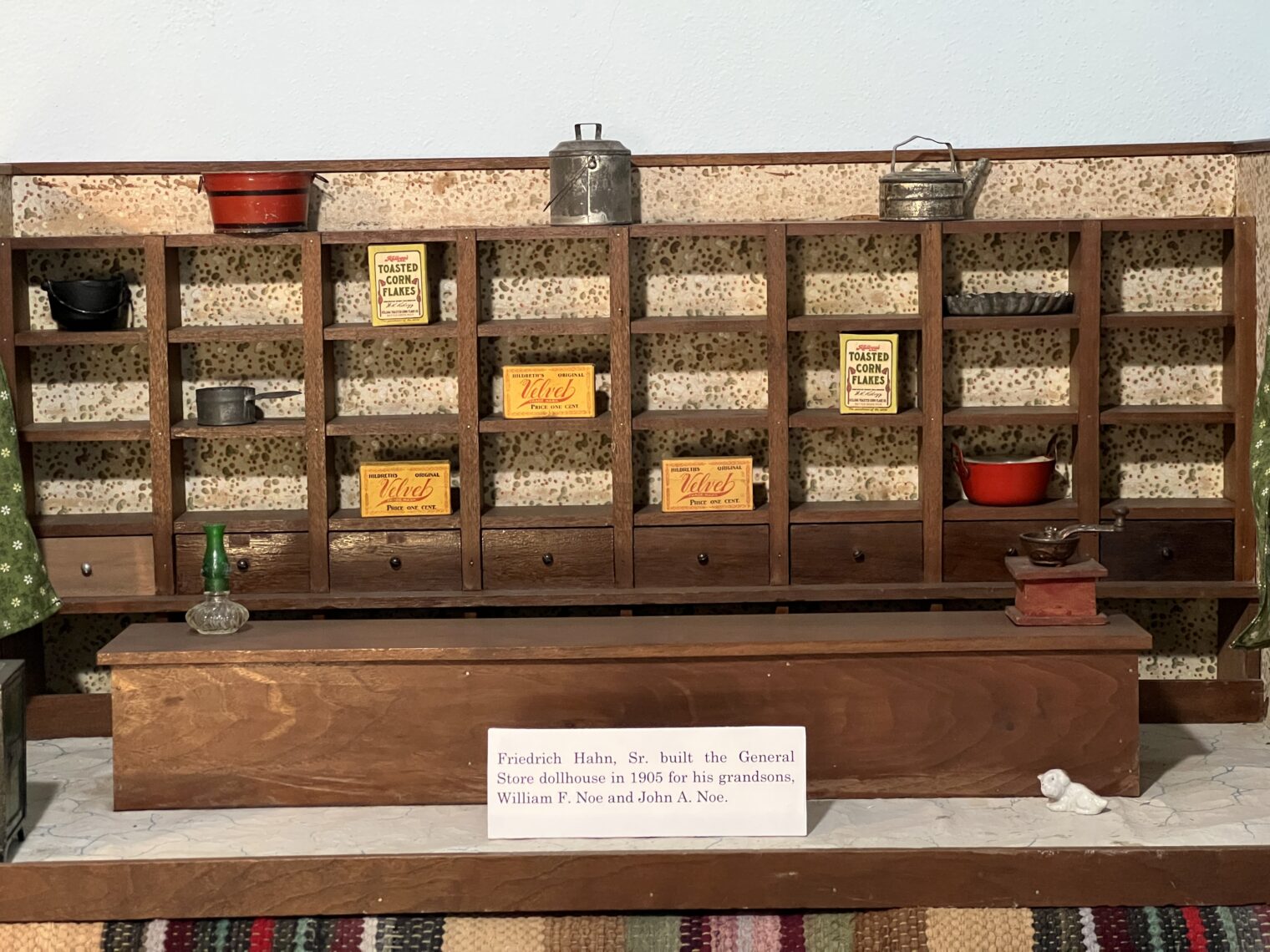
The success of the Amana Colonies was used as an argument by those who thought that a Communist form of government might work for the United States:
(Let me stress that the current American system, sometimes described by critics as “Communist” or “Socialist”, is the opposite of how things worked in the Amana Colonies and Soviet Russia. In Amana and Russia, every able-bodied adult was required to work.)
In church (9 times per week!), men and women were segregated into left and right sides of the room.
(I did not find out the seating location for people who identified as any of the other 72 gender IDs recognized by physicians.)
Equal in death, members of the Amana Colony are buried with same-size headstones in chronological order. There are no family plots nor any sculpture.


Don’t miss the Barn Museum in South Amana, in which Henry L. Moore’s replicas of rural American are displayed. See if you can spot Elizabeth Warren’s hometown…

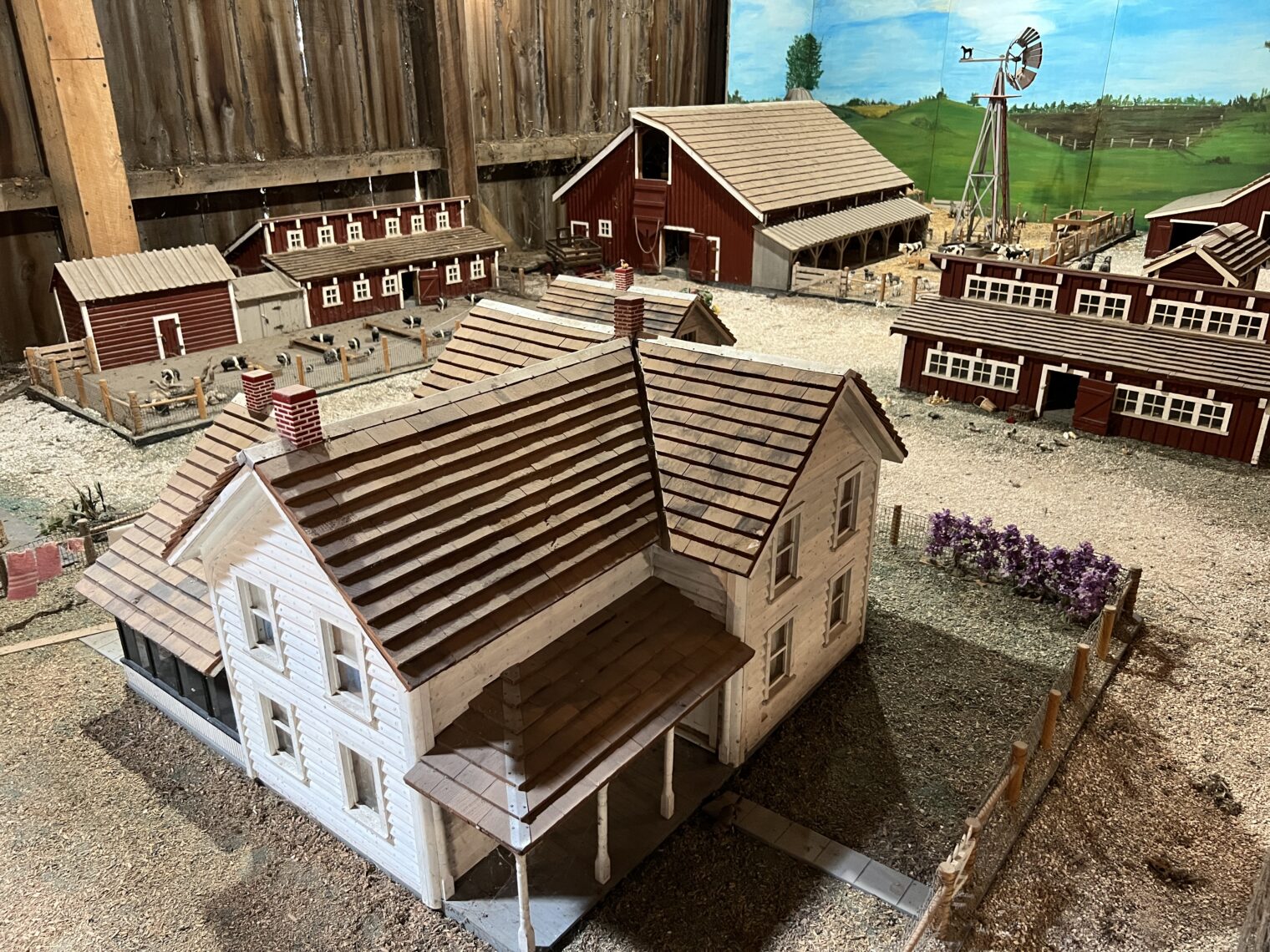
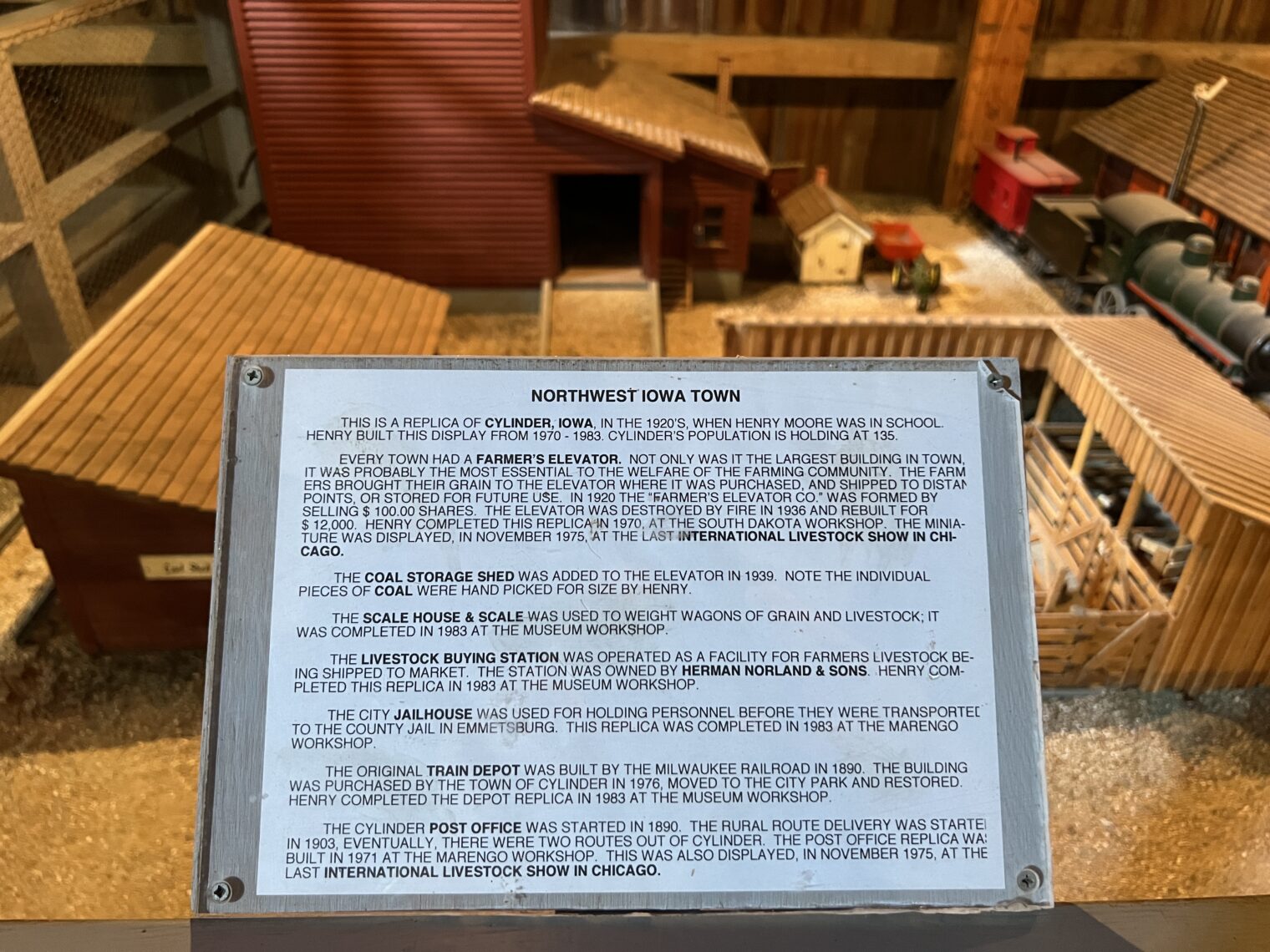

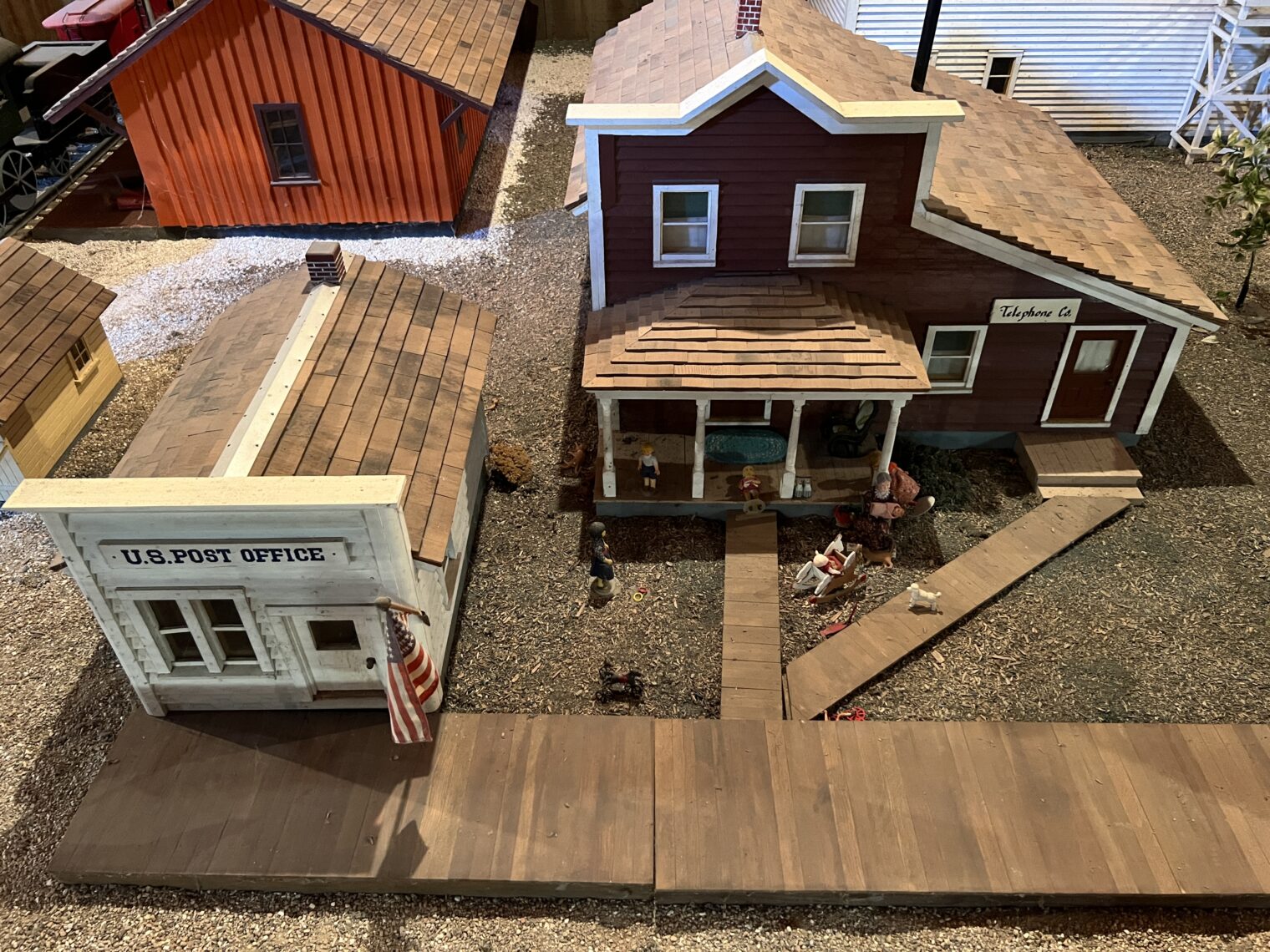

I’m not sure that the proprietor, the craftsman’s son, will be voting for Elizabeth Warren:
Where to eat? There are three restaurants in town and you have your choice of German, German, and German.


Where to stay? An old mill has been turned into a boutique hotel:
The Amana Radarange, the first home-use microwave oven, may not be your preferred souvenir. But you can buy blankets and beautiful furniture. Here’s the pavement-melting SUV that a wag at Hertz decided to drop at the FBO for me after I reserved a “car”:
Ready for departure at KCID:
As noted in The flying-to-Oshkosh part of flying to Oshkosh, the fuel/breakfast stop on the way to Chattanooga was KMWA in Illinois, which features an on-field recreational marijuana store, open every day that the public schools in Chicago were closed.


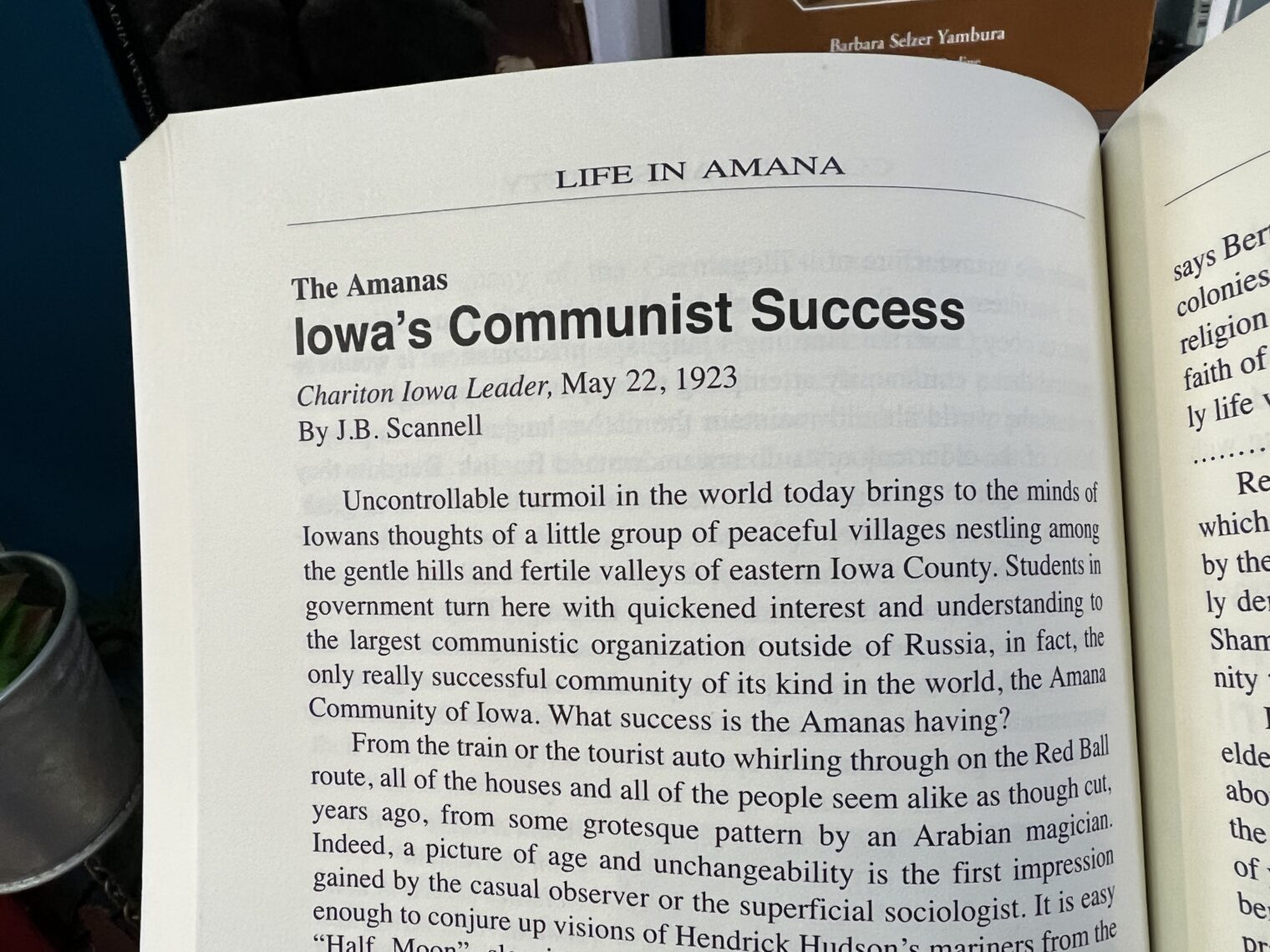
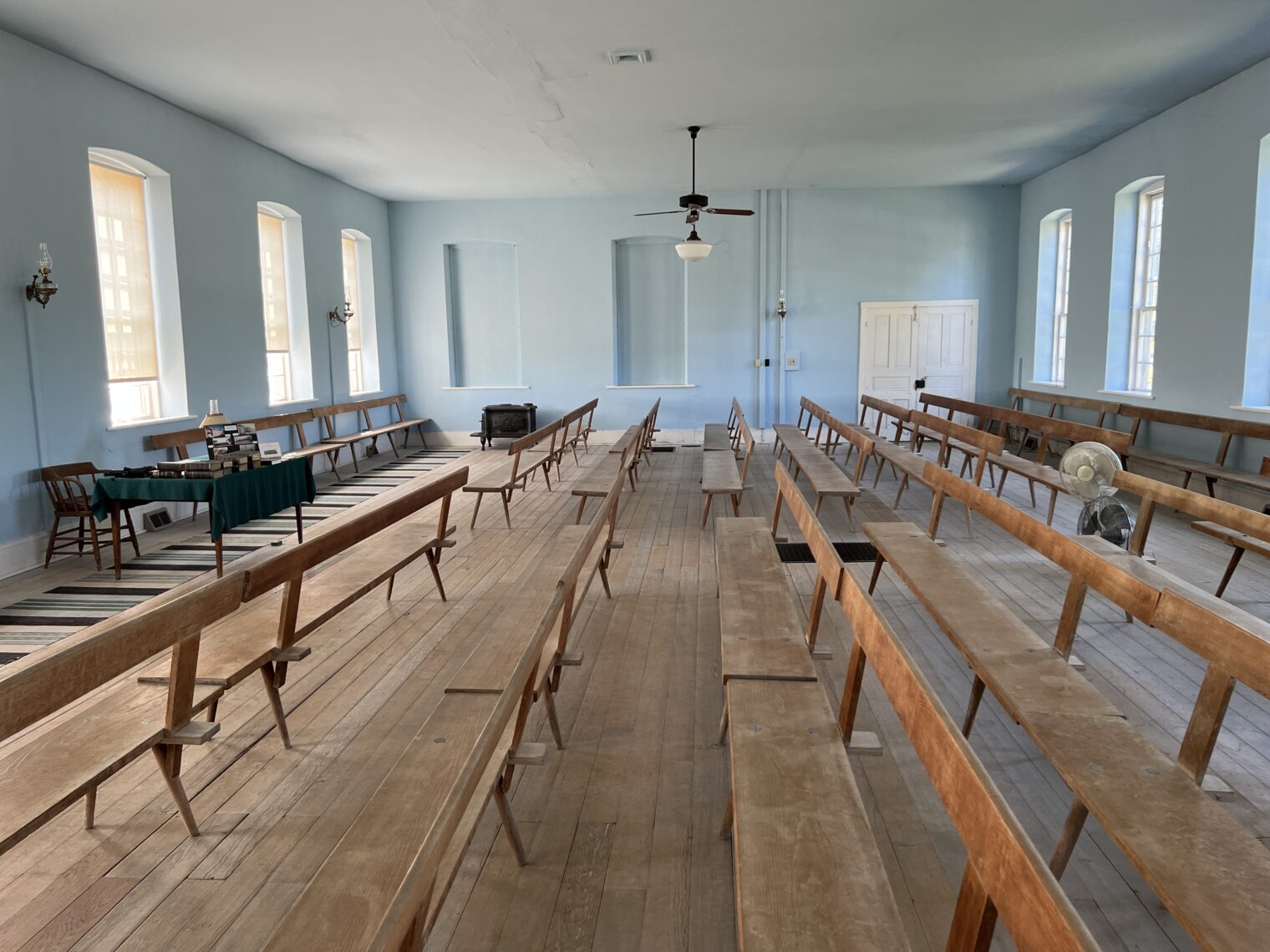




It’s a fascinating microcosmic, largely self-sufficient society (or at least it was, before the Great Change in 1931-32) and I wrote an extensive report about it in middle school, comparing it alongside other proposed “utopian” societies. I thought Amana was the most appealing, and because I was designated as a “gifted and talented” student I also enjoyed a few hours per week outside regular classes, where a friend and I diagrammed and planned a futuristic utopian community of our own (hint – it had a an extensive electric vehicle transportation network and a geodesic dome.)
I don’t remember reading about any serious substance abuse problems (alcohol or otherwise) or mental health problems in Amana. I suppose that 9 days per week of church and work details handed down by the Elders has a way of discouraging self-destructive “slacker” behavior. No Internet, either. And I never saw many newsstands, movie halls, pool halls, alternative theater troupes and so forth being discussed.
It would be absolutely condemned today because of the rigid binary gender roles:
“WORK:
Common positions held by women were in the kitchens, communal gardens, and laundry, among eight occupations. Men on the other hand had 39 different jobs to choose from, including barber, butcher, tailor, machine shop worker, and doctor. Children also participated in jobs, such as harvesting and agricultural duties for boys and kitchen work for the girls.”
However, I wouldn’t mind living in a house with other families as long as there were some reasonable space accomodations and privacy accomodations made. That doesn’t bother me.
https://en.wikipedia.org/wiki/Amana_Colonies#Work
Interesting to reminisce about, maybe. But absolutely impossible today.
Wow, 75 years longer then existence of USSR which lasted less than 74 years.
And significantly longer then commune established bu the Mayflower pilgrims that lasted barely one year or so, despite the pilgrims had contractual indentured servants with them. The GDR, socialist German “Democratic” Republic, was the model for all Eastern Block countries. Ukrainians stopped Putin’s secret plan to repeat it :-), his propagandists claimed that Russian Army will be on English Channel shore in a week
@philg: Your third photograph on the right side is a lovely composition and evokes nothing so much as the Harrison Ford/Kelly McGillis/Lucas Haas movie “Witness” from 1985, much of which was filmed in Lancaster County, PA among the Amish. I really enjoyed that movie as a teenager, even though parts of it were definitely inaccurate (the sex fling at the end between McGillis and Ford was tastefully done but it took some suspension of disbelief to handle.)
I still recommend the movie for anyone who hasn’t seen it. I think it was one of his better films, tense and suspenseful. At the time, many among the Amish thought it was exploitative, however, and I can see why. I still enjoyed the movie, but surprisingly not primarily because of the brief topless scene.
Maybe I’ll watch it tonight. I think your boys are intelligent and mature enough to handle it, or maybe in a year or so. It’s pretty mild compared to the stuff Hollywood pumps out today.
https://www.imdb.com/title/tt0090329/
@Alex, the Amish are not communists. They are pretty much anti-communists and do not live in a commune.
BTW you have to watch that clip all the way to the end…. 🙂
Melodramatic. Looks unrealistic. As usually thugs wait in line to attack etc…
@LSI: I understand that. I’m only saying that Philip’s picture reminded me of the movie. I encourage people who are interested in their different cultures to research them carefully.
I also don’t know if there are any good documentary films about life among the Amana, prior to the Great Change. If anyone can find one, it would be great to see it linked here.
@LSI: Of course it is. American audiences need the drama and the stereotypes, I guess. I also question the idea that the guys doing the nasty things in this scene were accurately portrayed. That’s another Hollywood trope – that patriotic Americans who wear “AIRBORNE” t-shirts are a bunch of rogue scumbags who would do this kind of thing.
But it helps sell the movie to the Hollywood execs, because that’s what they think.
@Alex, I am regular customer at Amish naturally grown produce farm stands, in season of course. Also one of fellow contractors told me once of someone taking long Genesis pre- flood name and joining Mennonites, for tax reasons. Mennonites drive cars and use electronics.
@LSI: >”Also one of fellow contractors told me once of someone taking long Genesis pre- flood name and joining Mennonites, for tax reasons.”
I guess that’s possible. It strains credulity a little, though. On the other hand, “If you can fake sincerety you’ve got it made”, as George Burns once said. But I think that’s disgraceful and if it’s true, they should toss him out. The Mennonites live a very different kind of life within what we could describe with only a little exaggeration as a completely amoral society. I’m sure there are people who try to take advantage of that in order to escape modern secular America for reasons of their own that are basically false.
It would be interesting to know how many people attempt that sort of thing. It can’t be very many. And if you really wanted to avoid taxes in America, why not just renounce your citizenship, stash the money somewhere, and move to New Zealand, for example.
I find these truly different ways of life fascinating because they represent such a contrast to the way most people in this country live their lives. And that contrast is briefly touched upon in the movie when Book asks his sister Elaine to put Samuel and his mother up for a night.
As I said I think the film is inaccurate in many ways but fascinating nevertheless.
@Alex, exit from America costs one-time tax penalty, and last time I looked into it which was almost 20 years ago, it makes little sense for average middle class Joe, not the Big Guy Joe: back than first $80,000 of foreign income while living on foreign soil is not double-taxable in US anyway. I am sure that now more than that is excepted.
The main thing that Mennonites do not do is that they do not vote in general elections and do not participate in any federal programs. Going forward voting may loose any attractions and for an average person, who is progressively farther separated from corridors of power and having little effect if any on final voting result. I do not see many reasons why folks in MA who can not afford to move to Florida would not want to join Mennonites if there actually were Mennonite communities in MA. I think this kind of thing may start trending for a while until the ruling class wakes up to it. I met more then few Mennonites at country fairs and picnic areas and such, they do not have feel of being from the other side of the moon.
Germans are famous for their communes. The most famous one in recent memory was Colonia Dignidad. Don’t know what it is about emigrant Germans. They have a combination of strong work ethic & christianity.
If you think that’s cool, check out Oneida. Literally the birthplace of “Free Love” (Although procreative sex was discouraged)